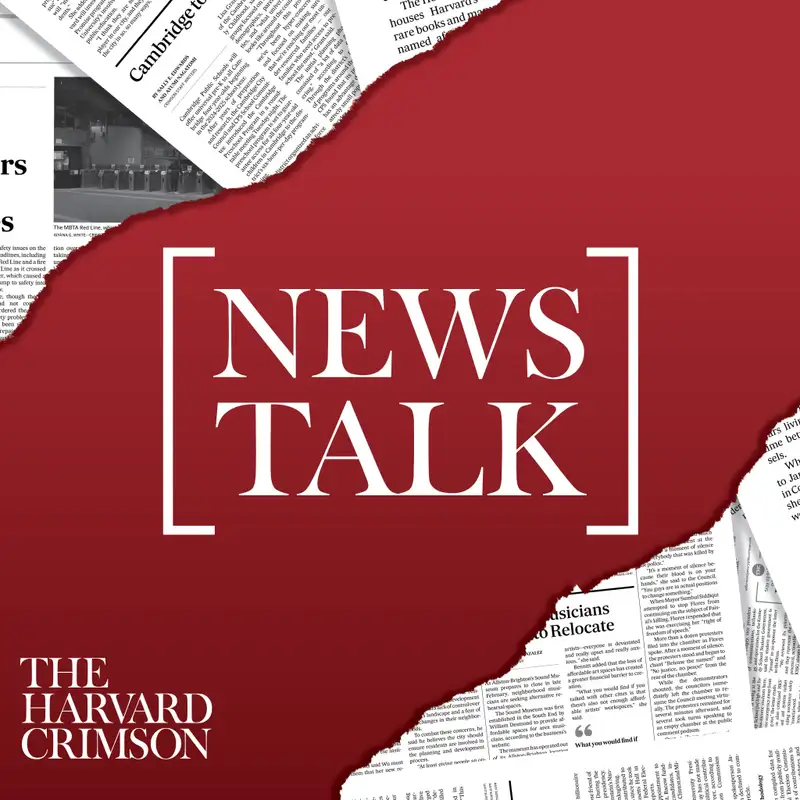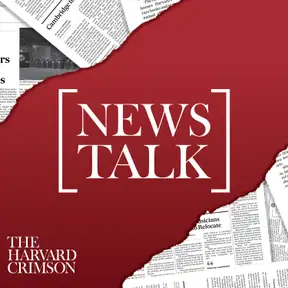
Inside Harvard's Lackluster Social Scene
From 14 Plympton Street, this is Newstalk. I'm Yael Goldstein. As America's oldest institution of higher education, Harvard University has many traditions to its name. From its annual match against Yale in November to the famed housing day in March, Harvard traditions serve as meaningful and memorable experiences for many students. But how do students feel about the current state of these traditions and more broadly about the general social scene at Harvard? Two reporters join us to discuss.
Natalie K. Bandura:Hi. I'm Natalie K. Bandura.
Azusa M. Lippit:And I'm Azusa M. Lippitt, and we cover House and Student Life for The Crimson.
Yael S. Goldstein:Thank you so much for joining me, Natalie and Azusa.
Azusa M. Lippit:Thank you. Thank you.
Yael S. Goldstein:We're here to talk about the current status of the Harvard social scene. So I'm wondering if you guys could give me sort of a perspective on what that looks like.
Natalie K. Bandura:Yeah. So, actually, it's later this week is gonna be a cornerstone Harvard tradition for many students, which is housing day in which students find out which of the 12 upperclassmen houses they're gonna be placed in. And then the Wednesday night beforehand, some students take part in an non sanctioned Harvard tradition in which they try to get into each of the 9 river houses, which are more desirable because they're closer to students' classes, and then some students take a shot of alcohol in the houses that they want or all of the houses. This year, there's going to be a change to that. The administrators are trying to promote safety. They're allowing students to be able to swipe into the houses, whereas before, they weren't able to, and a lot of students try to climb over a fence or get in in other ways.
Azusa M. Lippit:Yeah. I think we talked to a lot of students who said the most fun part of that tradition for me was when my blockmates and I ran into an elevator running away from the security guards and accidentally jumped. And then the elevator stopped halfway between two floors. And we were stuck there for an hour, and they were like, that was a thrill. And they were saying they were sad that freshmen were gonna be missing out on that this year.
Yael S. Goldstein:Students are taking a lot of the initiative for this particular tradition. But are most traditions student run, or are there other actors who are spearheading other events?
Azusa M. Lippit:So, yeah, we can take you through a couple of groups that are kind of responsible for the main social events and traditions on campus. One of those groups is the Harvard College Events Board, which is a group of students that makes up a sort of partner organization with the Dean of Students Office, And the DSO provides them with funding through the student activities fee, which is a $200 optional fee that students can choose to pay with their tuition. It's, in recent years, been declining a pretty significant amount, and from last academic year to this one, it decreased by about $70,000.
Yael S. Goldstein:So you mentioned a decline in student activity funds. How exactly is this affecting student programming? So with less and less funds in that cumulative pool of money, events and traditions aren't able to be as financially supported. We talked to associate dean of student engagement, Jason Meyer, and he's saying that this flood of opt outs left the DSO in a difficult financial situation where students demand more funding for events and activities, such as better headliners for Crimson Jam and Yard Fest. Crimson Jam is another concert out in the yard in the fall, and yet the funds are gone, so there's not enough money to fund all of these things. Dean of Students Thomas Dunne said that the SAF being optional is rare compared to peer institutions. So at some other schools, it's mandatory that students pay this fee.
Natalie K. Bandura:And a concern with that is if it's optional, there's not really a way to then tell students, okay. You didn't pay the fee, so you can't come to Yardfest. You can't get on a Yale bus. You can't come to Crimson Jam. And so there's that disconnect where students are opting out increasingly and yet still benefiting from these events.
Yael S. Goldstein:Mhmm.
Azusa M. Lippit:And what's especially difficult here is there's a lot of response to this declining fund of students saying, hey. We have this multibillion dollar endowment. Why can't we just dip into that and pay for social programming through the endowment? But the problem is that for student organizations to be entirely financially independent, which they currently are, the SAF provides this kind of third party solution where students are actually directly paying for it through their tuition, and that is still allowed to be an independent financial source. But if the college starts paying for student organizations and their events, they'll become no longer independent, and that will create a whole new system of going through the administration to make financial decisions for clubs that currently don't do that.
Yael S. Goldstein:I know Natalie mentioned that other schools have implemented something like a student activity fee, but how do their systems differ from the Harvard system?
Azusa M. Lippit:In our conversation with dean of students Thomas Dunne, he brought up how at his last institution where he was the deputy dean of students, Princeton, for more than 20 years, he actually oversaw the implementation of a centralization process for club funding where now all of the clubs go through the administration for their banking and their accounting process. And he also mentioned that just last year, he had worked with their student government to actually raise the fee. And so he mentioned that this year, their student government and their student orgs have even more money than last year, which is a little bit different from Harvard's situation now.
Yael S. Goldstein:So the fund is going down, and students are moving away from specifically college run events. Where are they going?
Natalie K. Bandura:Yeah. So a lot of Harvard student organizations, there are parties that students tend to prefer, but different clubs have different levels of exclusivity. Other places to go include finals clubs, which are incredibly exclusive. The other issue that some students have brought up to us is that there's an inequity of fun between students who are in these finals clubs and students who are not in terms of how readily accessible these college parties may be. Some students have said that the main issue why some people want to go to the finals club is just because they have a location.
Natalie K. Bandura:They have a spot. They have a house that they can throw at. So some students have said to us, like, for instance, if there was more social spaces or a bar in the square or something, then it would be better and people wouldn't wanna go to those finals clubs as much.
Yael S. Goldstein:Are there any possible solutions that students or administrators have presented to sort of bolster the fun that students can have on the weekends or during the week?
Natalie K. Bandura:Yeah. Well, something that students have said is just kind of make your own fun, look on the bright side, organize your own events.
Yael S. Goldstein:So can one of you go into any more specific detail about efforts to improve the social scene here?
Azusa M. Lippit:Yeah. So we actually spoke to 2 students who are really taking it into their own hands to build some school spirit. One of those students is a senior who is on the football team, and though he said that his original incentive was to just get more people to show up to his own games, he started this pretty huge Instagram account called harvardstate1636, our notorious founding year, And on there, he just posts information for tailgates, game schedules, and even attire themes for attendees of various games. And he told us that he really just thinks there's no reason why we can't bring the same game day energy as state school. We have a lot of amazing d one sports teams.
Azusa M. Lippit:Let's show up to those games, and that seems to have been a really positive effort. He said that he's gotten great feedback from teams, like, we haven't seen this many fans show up in so long. The the crowd was so energetic, so that was great to hear about. Another one is a student who is hoping to get a turkey mascot institutionalized. We're currently the Crimson, which is a little bit difficult to have somebody in a costume running around on the field.
Azusa M. Lippit:So he got a turkey mascot costume budget approved, got the costume, and he's hoping that students will really take to that on campus.
Natalie K. Bandura:Yeah. Some context: There's a lot of turkeys wandering around the yard at all times, so that's kind of the inspiration. It's something we see often every day going to class with Harvard students.
Yael S. Goldstein:Amazing. Thank you so much for joining me, Natalie and Azusa, to talk about the status of the Harvard social scene.
Natalie K. Bandura:Thank you.
Azusa M. Lippit:Thanks for having us.
Yael S. Goldstein:This episode of Newstalk was hosted by Yael S. Goldstein. Producers of this episode are Yael S. Goldstein and Frank S. Zhou. Our multimedia chairs are Julian J. Giordano and Addison Y. Liu. Our associate managing editors are Claire Yuan and Elias J. Schisgall. Our managing editor is Miles J Herszenhorn. Our president is J. Sellers Hill. Music in this episode is from freesound.org. From Plympton Street, this is Newstalk.
Creators and Guests



